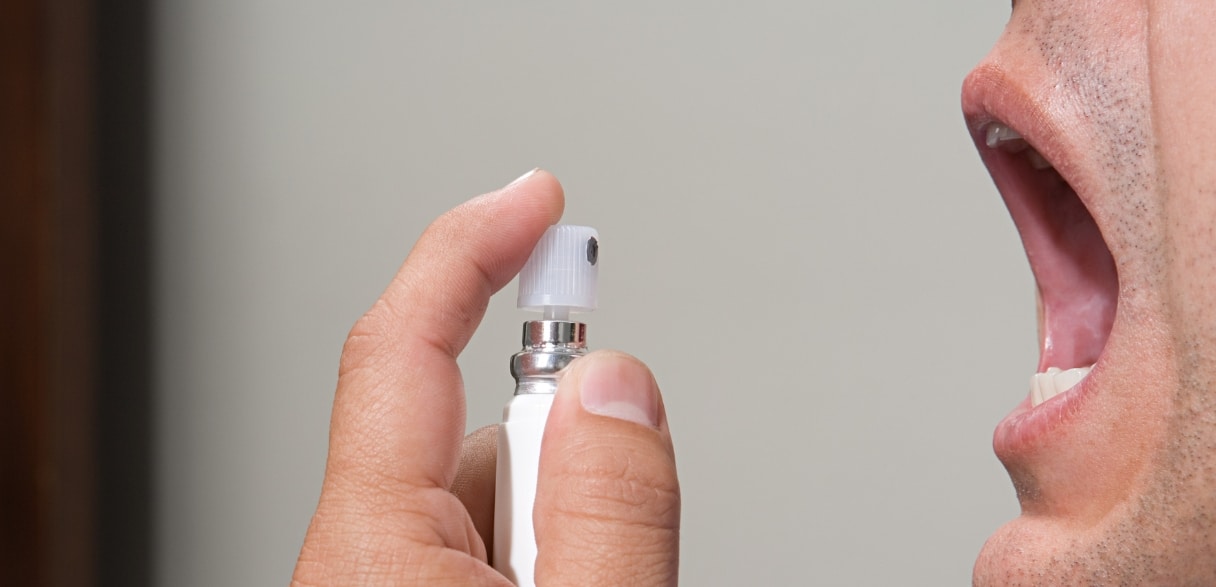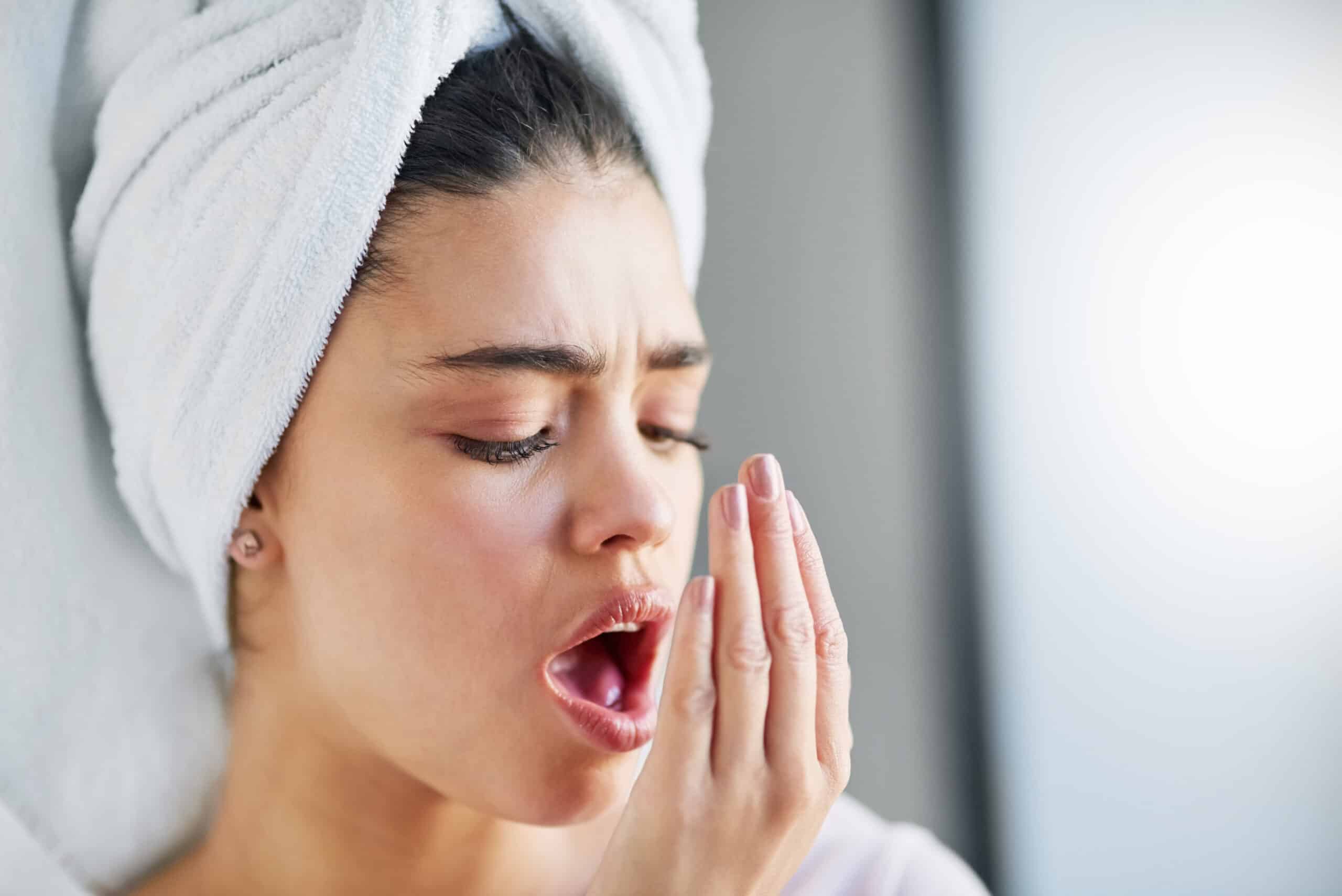
Fresh breath boosts confidence, and many people turn to mouth fresheners for a quick fix. But do they actually help oral health or just mask bad breath? While they offer convenience, their long-term effects deserve a closer look. This guide will explore how mouth fresheners work, their impact on oral health, and better ways to keep your breath fresh while protecting your teeth and gums.
What is a Mouth Spray?
Mouth sprays are liquid-based fresheners, commonly called mouth freshener sprays, that provide instant freshness by neutralizing odor-causing bacteria. They usually contain alcohol, menthol, essential oils, and sweeteners. A few sprays inside the mouth can temporarily eliminate bad breath and leave a cool, minty sensation. Some formulations also contain antibacterial agents that help reduce plaque buildup.
While mouth sprays offer convenience, they do not replace proper oral hygiene. Overuse or reliance on these products can sometimes lead to unwanted oral health issues.
How Do Mouth Sprays Work?
Mouth sprays work by masking bad breath and, in some cases, eliminating odor-causing bacteria. Here’s how they function:
- Neutralizing Odors – Most mouth sprays contain menthol or peppermint, which provides a cooling sensation and temporarily neutralizes bad breath.
- Killing Bacteria – Some mouth fresheners contain antibacterial ingredients that can reduce bacteria in the mouth. However, this effect is usually short-lived.
- Moisturizing the Mouth – Certain sprays for dry mouth help stimulate saliva production, preventing dryness and discomfort.
- Masking Bad Breath – Many fresheners simply cover up bad breath rather than addressing the root cause, which may be poor oral hygiene, gum disease, or dietary choices.
Effects of Mouth Fresheners on Oral Health
Using mouth fresheners can have both positive and negative effects on oral health. Here’s a breakdown of the impact:
Potential Benefits:
- Instant Freshness – They provide an immediate burst of fresh breath, useful for social situations.
- Convenience – Mouth sprays and chewing gums are portable and easy to use on the go.
- Mild Antibacterial Properties – Some formulations help reduce oral bacteria temporarily.
- Saliva Stimulation – Certain sugar-free gums or sprays can help people with dry mouth by encouraging saliva flow.
Potential Downsides:
- Temporary Effect – Mouth fresheners don’t solve the root cause of bad breath; they only mask it.
- Alcohol Content – Many sprays contain alcohol, which can cause dry mouth over time and lead to bad breath.
- Artificial Sweeteners – Some fresheners contain artificial sweeteners that may contribute to tooth decay if used excessively.
- Increased Acidity – Some ingredients in mouth fresheners may lower the pH level in your mouth, increasing the risk of enamel erosion and cavities.
Tips for Using Mouth Fresheners Responsibly
To minimize the negative effects and maximize the benefits, follow these tips when using mouth fresheners:
- Choose Alcohol-Free Options – Alcohol-free mouth sprays are gentler on the mouth and won’t contribute to dry mouth.
- Limit Usage – Use fresheners only when necessary, and don’t rely on them as a replacement for brushing and flossing.
- Opt for Sugar-Free Products – Look for xylitol-based fresheners, as they can help prevent cavities rather than contribute to them.
- Maintain Good Oral Hygiene – Regular brushing, flossing, and using mouthwash are more effective at keeping your breath fresh.
- Stay Hydrated – Drink plenty of water to keep your mouth moist and wash away bacteria naturally.
- Address the Root Cause – If bad breath persists, consult a dentist to rule out underlying dental or health issues.
Alternative Solutions for Fresh Breath
If you want to maintain long-lasting fresh breath without relying on commercial mouth fresheners, consider these natural alternatives:
- Proper Oral Care Routine – Brush twice a day, floss daily, and use a fluoride mouthwash to keep your mouth healthy.
- Drinking Water – Staying hydrated helps wash away food particles and bacteria that cause bad breath.
- Chewing Sugar-Free Gum – Xylitol-based gum stimulates saliva production and reduces bacteria in the mouth.
- Eating Fresh Herbs – Chewing on parsley, mint, or basil can naturally freshen your breath.
- Consuming Probiotic Foods – Yogurt and fermented foods help maintain a healthy balance of oral bacteria.
- Oil Pulling – Swishing coconut oil in your mouth for a few minutes daily can help remove toxins and improve oral hygiene.
- Regular Dental Checkups – Seeing a dentist for professional cleanings and checkups can prevent bad breath and other oral health problems.
Final Words!
Mouth fresheners can be a useful addition to your oral care routine, but they should never replace proper hygiene practices. While they offer instant freshness, relying on them too much can lead to potential oral health issues. Choosing alcohol-free, sugar-free options and maintaining good oral habits is key to keeping your breath fresh without compromising your dental health.
Frequently Asked Questions :
What is the best product for a dry mouth?
For dry mouth relief, opt for alcohol-free mouth sprays, xylitol-based gums, or hydrating mouth rinses. Drinking water frequently and using a humidifier at night can also help keep your mouth moist.
What are the side effects of moisture spray for dry mouth?
Moisture sprays for dry mouth are generally safe, but some may contain artificial ingredients that can cause mild irritation or allergic reactions. Overuse can also lead to dependency, making your mouth produce less saliva naturally.



